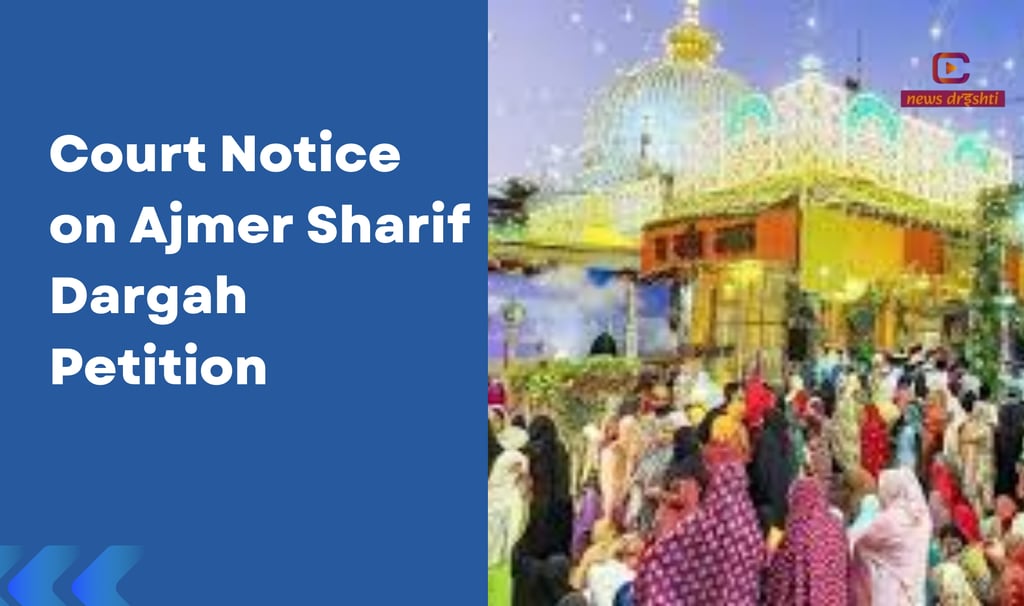Court Notice on Ajmer Sharif Dargah Petition
A Rajasthan court has issued notices to the Union Ministry of Minority Affairs and the Archaeological Survey of India following a petition by Hindu Sena. The petition claims the Ajmer Sharif Dargah...
NATIONAL


Ajmer: A court in Rajasthan’s Ajmer has issued notices to the Union Ministry of Minority Affairs and the Archaeological Survey of India (ASI) following a petition filed by the Hindu Sena, asserting that the Ajmer Sharif Dargah, a revered Sufi shrine, was built atop a pre-existing Shiva temple. The petition references “historical evidence” to support its claims.
The Ajmer munsif criminal and civil (west) court has scheduled the next hearing for December 20, 2024. The Dargah Khwaja Saheb committee, a statutory body under the Ministry of Minority Affairs, has also been named as a respondent in the case.
Advocates representing the Hindu Sena, including Yogesh Suroliya and Ram Swaroop Bishnoi, submitted copies of historical texts such as Har Bilas Sarda's 1911 book Ajmer: Historical and Descriptive to substantiate their claims. According to the petitioners, the book allegedly documents remnants of a Shiva temple used in constructing the dargah, which was established over the tomb of 13th-century Sufi saint Khwaja Moinuddin Chishti.
The petition seeks an ASI survey of the dargah premises, arguing that remnants of a sanctum sanctorum could still exist in its basement and that elements of a Hindu temple were incorporated into the dome.
The case echoes other high-profile disputes, such as the Gyanvapi mosque case in Varanasi, where plaintiffs claimed that the mosque was built over the ruins of a temple, and the Krishna Janmabhoomi case in Mathura. Both have sparked intense legal and social debates.
Responding to the lawsuit, Syed Sarwar Chishty, secretary of the Anjuman Moinia Fakhria, which represents the dargah’s hereditary caretakers, dismissed the claims as baseless and harmful to communal harmony. "These assertions hurt the sentiments of millions of devotees worldwide and aim to disrupt the unity for which Ajmer Sharif stands," he said in a statement.
Legal experts noted that while the Places of Worship Act, 1991, prohibits altering the status of religious sites as they existed on August 15, 1947, the act's applicability in such cases remains contested in courts.
The Hindu Sena filed the petition in September, but the initial hearing faced delays due to jurisdictional issues and translation requirements. As the case progresses, it is expected to draw significant public and political attention, given the dargah’s importance as a symbol of spiritual unity and communal harmony.
The upcoming hearing will determine the next steps in this sensitive case, with all eyes on the court’s decision regarding the ASI survey and its implications for the nation’s secular fabric.
